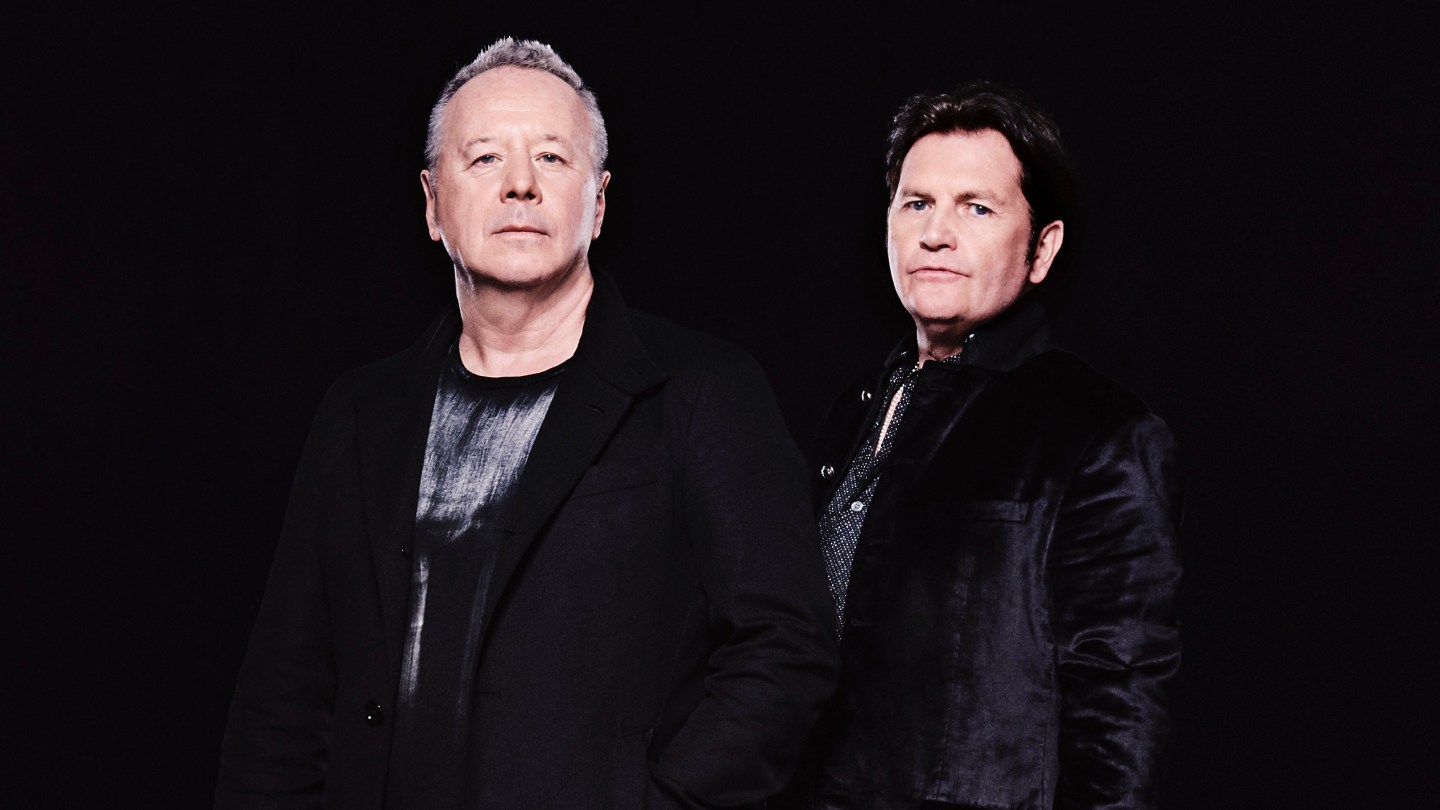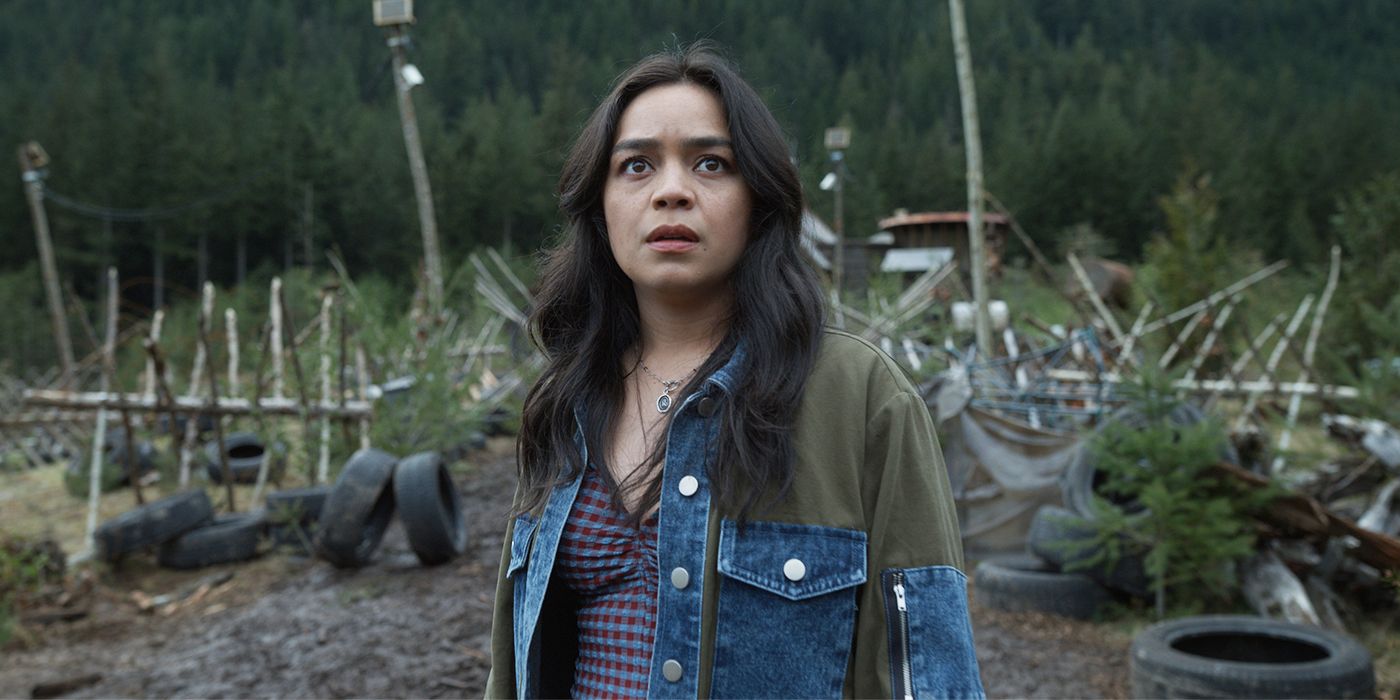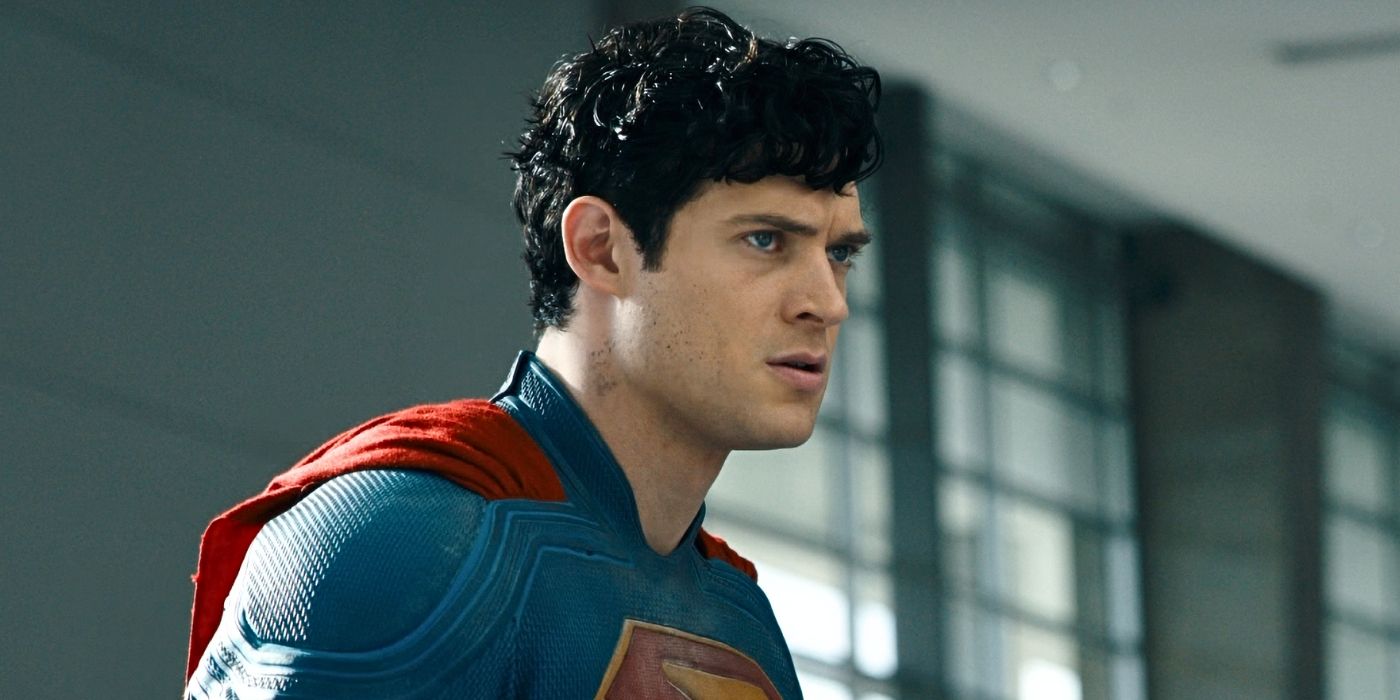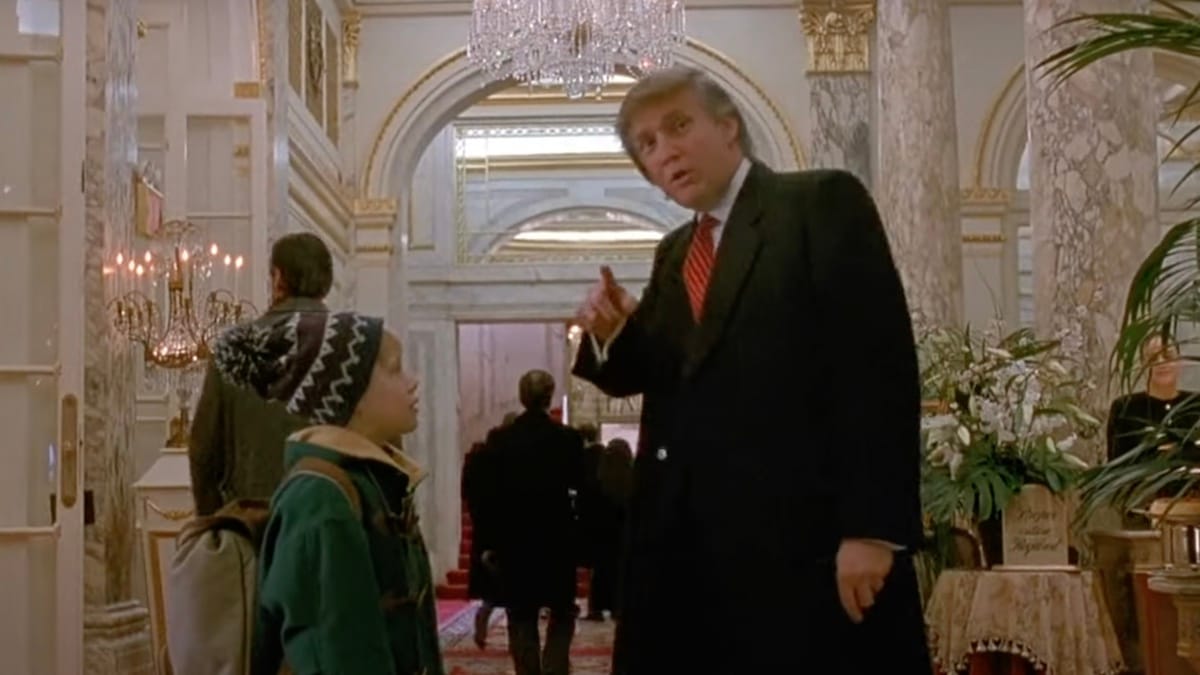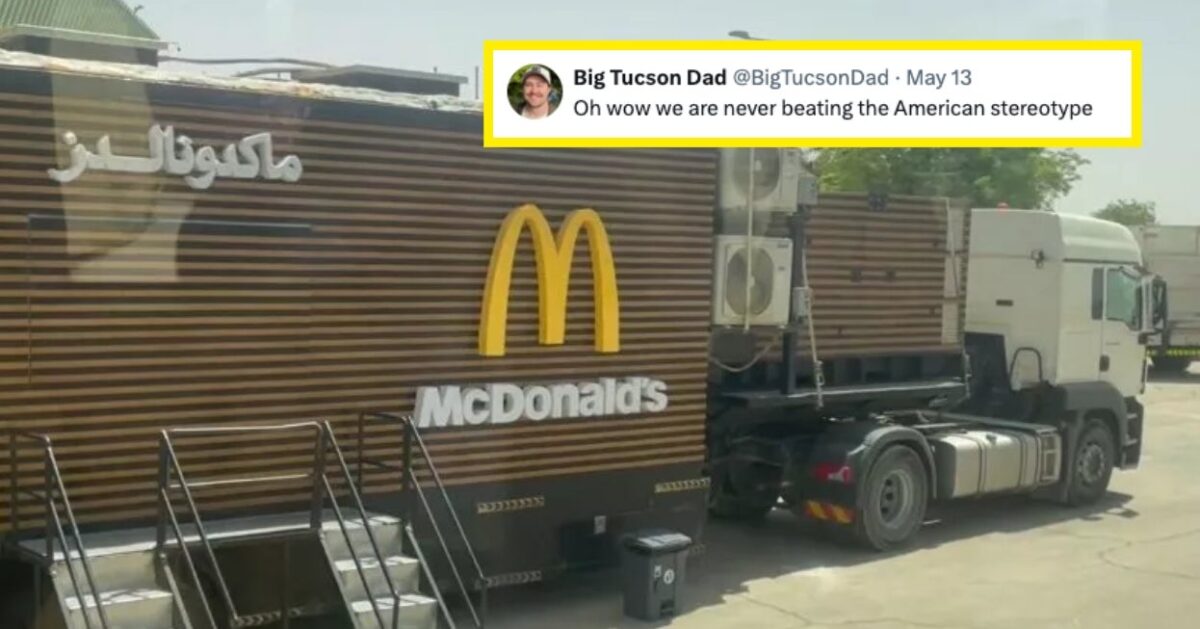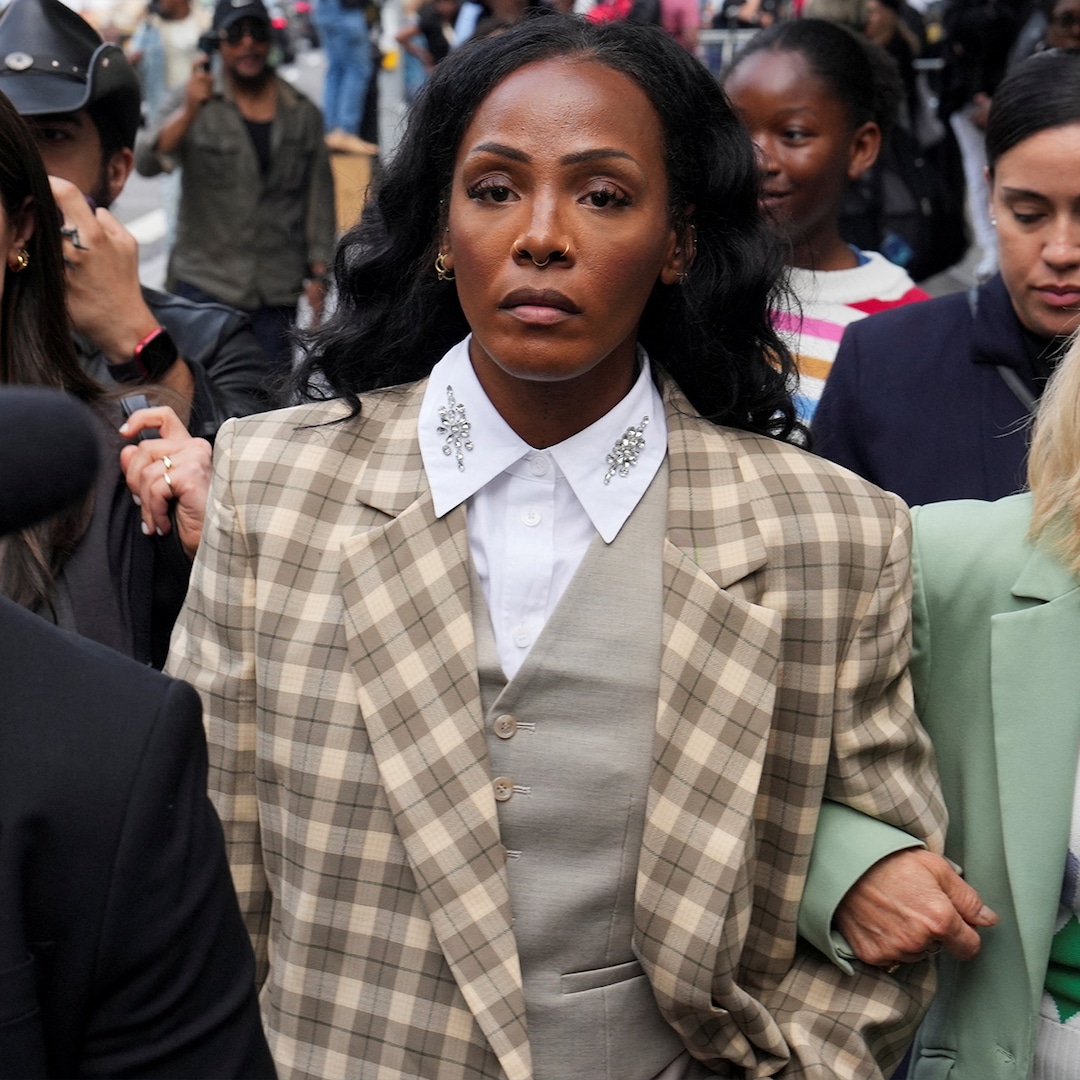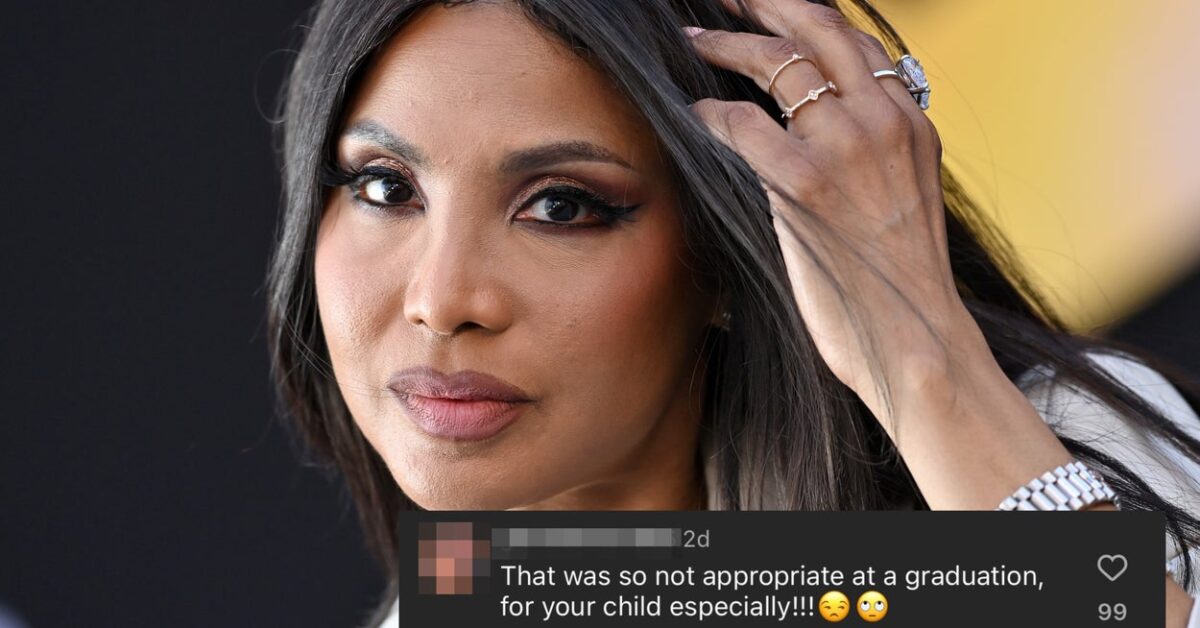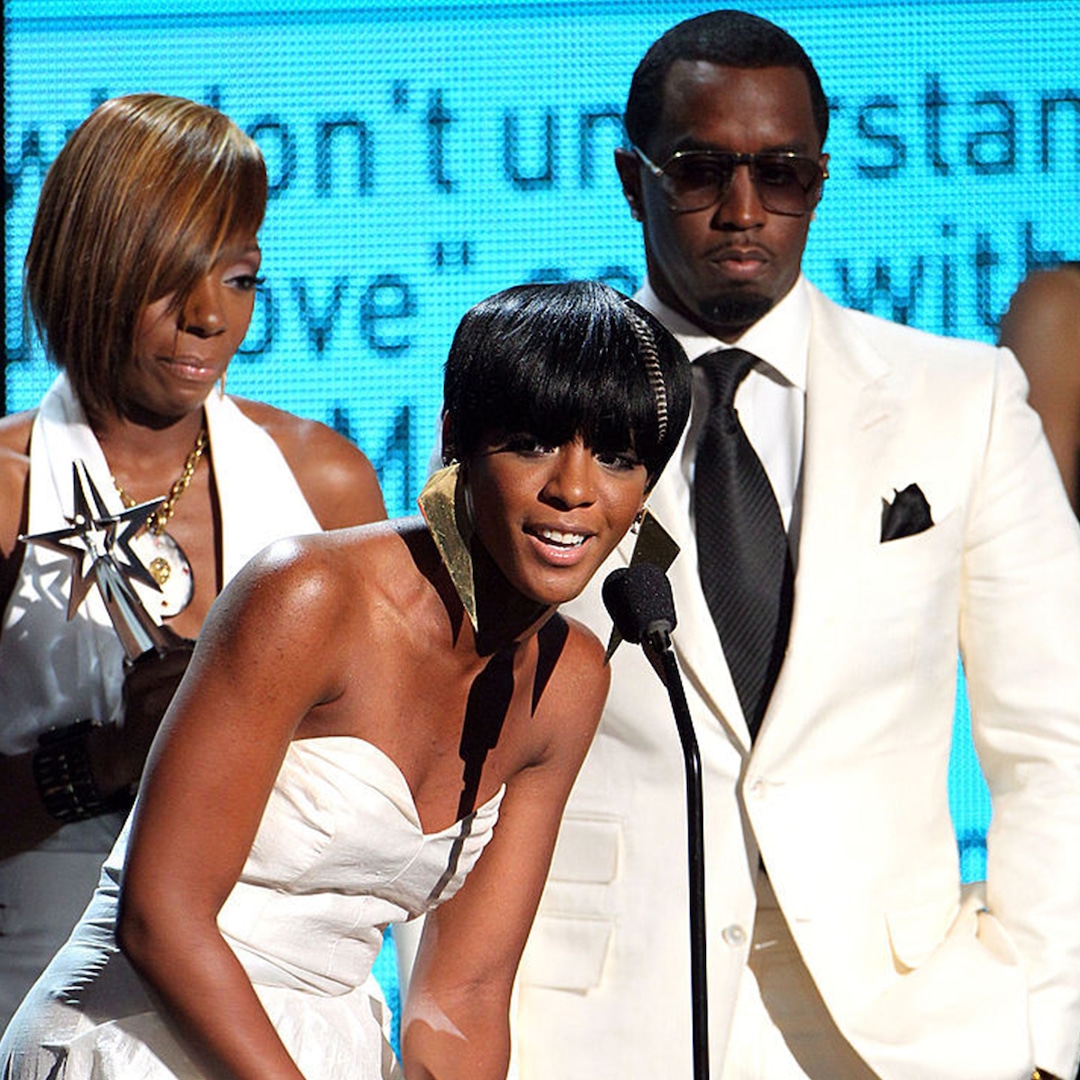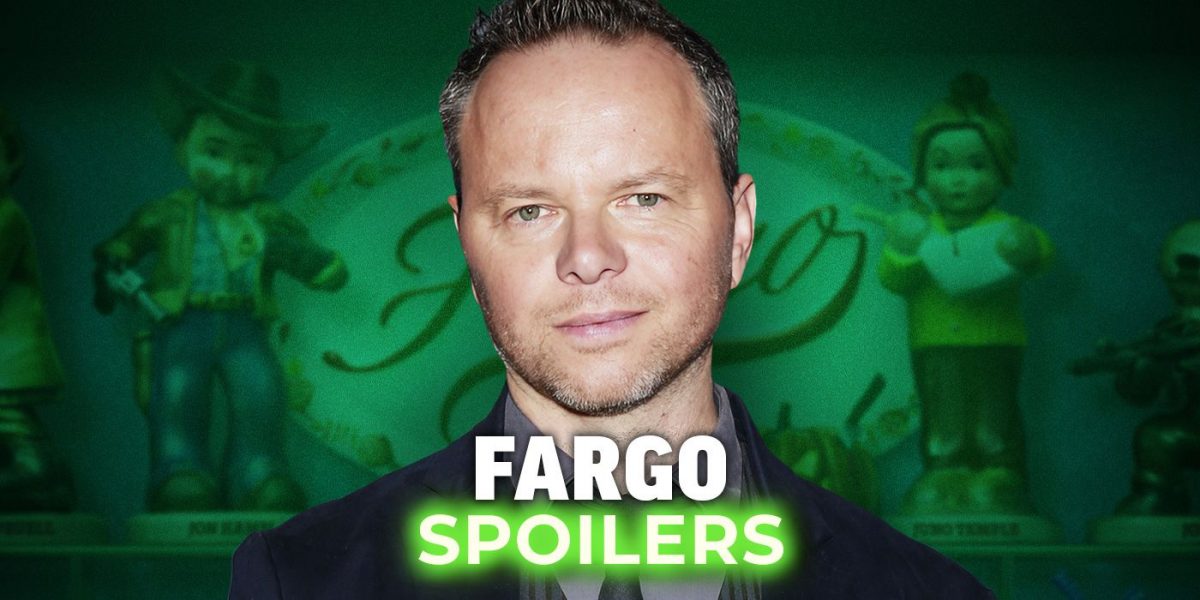
‘Fargo’ Season 5 Finale and Ending Explained by Noah Hawley
Jan 17, 2024
The Big Picture
Fargo Season 5 finale explores themes of debt and sacrifice, showcasing Noah Hawley’s masterful storytelling and understanding of viewer response. Hawley’s writing process involves creating a concept, writing a script, and collaborating with writers to develop the story through improvisation and comedic sensibility. Hawley gives an update on his Alien series for FX, what he knows about the “big picture,” and working with the network to ensure it’s fully story-driven.
[Editor’s Note: The following contains spoilers for the Fargo Season 5 finale]
Award-winning Noah Hawley is one of the most accomplished auteurs and versatile storytellers working in television, film and literature. He created the Fargo series back in 2014, based on Joel and Ethan Coen’s Oscar-winning film of the same name, expanding on the universe in what’s become an acclaimed anthology series, playing on the idea that truth is always stranger than fiction. From the show’s first season, Hawley has penned some unforgettable characters, and has seen this series through the evolution of television by honing in on what makes for masterful storytelling, and understanding what viewers respond to.
With the Fargo Season 5 finale now available to watch or stream, Collider’s Steve Weintraub conducted a spoiler-filled interview with Hawley about Jon Hamm’s unsettling take on Roy Tillman, the themes of debt and sacrifice, what inspired that end scene, and the making of the fifth season. In this interview, which you can check out below, Hawley indulges our hopes (and Wes Anderson’s) of getting Fargo in 4K, discusses the complicated nature of Hamm’s character in Season 5, and why he’s so unnerving, and teases what may be in store for Roy Tillman after the credits roll on the season finale. He shares with us his writing process and his instinct for pitching the absurd, the process of elimination when it came to who had to die, the lore behind Ole Munch (Sam Spruell), and how that lore and a particular scene in No Country for Old Men inspired that bizarre final scene. Finally, Hawley talks about his Alien series for FX, what he knows about the “big picture,” and working with the network to ensure it’s fully story-driven.
The fifth season of Fargo stars Hamm, Juno Temple, Jennifer Jason Leigh, Joe Keery, Lamorne Morris, and more.
Fargo Various chronicles of deception, intrigue, and murder in and around frozen Minnesota. All of these tales mysteriously lead back one way or another to Fargo, North Dakota. Release Date April 15, 2014 Main Genre Crime Rating TV-MA Seasons 5 Studio FX
COLLIDER: You’ve done a lot of cool stuff. If someone has never seen anything you’ve done before, what is the first thing you’d like them to watch and why?
HAWLEY: Oh, interesting. I certainly think the first hour of this year is actually a great primer for the Noah Hawley experience in that it combines a lot of the things that I think are strongest for me, which is, there’s a tone of voice there that balances between the sort of comedic or absurd and the dramatic and violent on the one hand. I think that it has a level of suspense to it that I’m very proud of as a director in terms of how I built out that episode and the sequences that are in it. Honestly, I think if you watch that first hour, I’ve got you.
Wes Anderson Would Like ‘Fargo’ in 4K, Please & Thank You
Image via FX Network
Oh, 100%. You know that I’m a big fan of Legion, so I ask this as a fan: will we ever get a 4K release or a 4K box set of the show?
HAWLEY: Well, you better. I didn’t know we didn’t have one. Let me make some calls. They should do that. We certainly shot it at the highest resolutions that were available at the time. It’s certainly a visual show that should be supported by the best possible release.
I fully agree with what you just said.
HAWLEY: I agree with you agreeing with me.
Same thing with Fargo. Do you ever see these seasons getting 4K releases?
HAWLEY: I think so. I think they will. I never understand what makes them make physical objects out of things anymore, whether you’re gonna get a Blu-ray, et cetera. I remember this whole back and forth in our fourth year with Jason Schwartzman, who kept asking me, he said, “Wes Anderson wants to watch it. Do you have a Blu-ray?” And I was like, “Well, it’s airing right now. There’s no way I’d have a Blu-ray, but he could stream it,” and he was like, “Oh, he doesn’t want to stream it.” So, I don’t know if he’s ever watched it because I didn’t have the medium that was his preference. But I certainly feel like it is a show for cinephiles. We were one of the first modern shows to have a full orchestral score. There’s a reason to release it at the most film geek level.
Yeah, like 4K seasons. I’m planting these seeds in case no one else has said it to you.
HAWLEY: Well, yeah, no one has.
Image via Suzanne Tenner
Exactly. So, if the only thing that comes out of our conversation is you talking to people about, “Hey, could we get a 4K release?” Great.
HAWLEY: I’m on it.
So, how do you decide how many episodes? For example, with Season 5, how do you decide how many episodes it is gonna be, and how much is it story-driven? How much is it that you can say to the network, “I need eight episodes, or 11?” How do you decide on that number?
HAWLEY: Well, 10 is the default, and 10 tends to be the right number. Obviously, our fourth year was 11, and that came out of two things; one was a prolonged editing period since we shut down for COVID and then had an extra six months between when we were supposed to air and then when we ended up airing, where I was able to live with the material for longer, plus the fact that we had 23 main characters and it was this sort of sprawling epic. So, I just started to streamline the storytelling, and to say, “Okay, well, Schwartzman’s storyline is gonna be stronger if I build this episode around him, versus he’s a little bit in this one and a little bit in that one.” It ended up that I was able to build out another hour out of it. Part of that was also, you know, this was the peak of long TV, where that season we were in the 55 to 65-minute episodes. Even I, as a viewer, was feeling like, “I think I’m done watching this now. I know we have 15 minutes left to go, but I think the audience, in order to really hold them, we need to be more concise.” So, I’ve made 11 tighter episodes than 10 longer episodes.
Jon Hamm in ‘Fargo’ — Villain or All-American Hero?
Jon Hamm’s Roy Tillman is deliciously evil, and so well-written. Was he meant to be evil from day one, or is that something that became more developed as you worked on the scripts? How did you figure out that line of the Roy Tillman character?
HAWLEY: It’s interesting that you say evil because there was part of me that always felt, and still feels like he may be the protagonist of the show for some people. You know what I mean?
Unfortunately, that’s true.
HAWLEY: Yeah. There’s a point of view there, and a way of looking at what family is, what America is, et cetera, that is not fantastical. It’s not made up. So, I think what one of the things that Jon embodied so well was the really grounded physical form of this guy. Jon put on some bulk for it. He just dominates the rooms and the scenes, and he came to this sort of gruff speaking voice. I think part of what’s frightening about him is that he appears to be so rational in his own mind. We build in the eighth hour to a level of violence on his part where he does break a sweat, where he does lose control of himself. But then, when he’s back in that room with poor Dave Foley, he’s still again. So, I think it was less necessarily that he was scripted to be evil and more that what Jon found in him was so unsettling.
Yeah, maybe evil is a strong word, but I strongly disagree with what this character believes in. The show is so well-written and it just feels so good to watch. How much when you are writing do you actually know where it’s ultimately gonna go? If you could pull back the curtain a little bit and talk about how you figure out the full arc of the season? Is it during the writing process, or are you outlining and then you’re like, “Oh, yeah, I wanna do this?”
HAWLEY: I don’t like outlining. I’ve stopped outlining in terms of delivering outlines to the network. What I tend to do is I will have a concept for the season, and this year it’s a sort of dialogue with the movie, so the idea that a man hires two guys to kidnap his wife. In Joel and Ethan’s version it’s her current husband, in my version it’s the husband she escaped from. So, that premise, and then saying, “Alright, so in the film it’s a father-in-law. I’d like to play with the mother-in-law as the rich character.” This is the first time we’ve ever been as literal with the movie. Then I will write a script, because it’s always better to read a story with characters in it than to pitch one, and then I hire three or four writers and we sit in a room for a couple of weeks. It really is a conversation. I have some ideas going into the room about where the story goes, but the more I think about it, the more my approach to storytelling is the classic improv, “Yes, and…” I’m not Vince Gilligan, who will come up with a twist for Breaking Bad and then they’ll spend two weeks trying to top it, right? If we come up with something that I like, that’s in the show, and then what happens next?
Some of it, for me, springs from a comedic sensibility. I pitched the room, the skeptical room, “An old woman comes home, and there’s Ole Munch up in her attic, and he says, ‘I live here now,’.” I don’t know why that’s interesting to me. It seems so unsettling and strange, and then that’s in the show. Or this idea of fake Wayne, the idea that there’s this guy who’s literally the most entitled asshole in America, and Dot switches the nameplates and then this guy gets taken by Roy. Then we kick around, “Well, how many episodes is that? How much mileage are we getting out of fake Wayne?” And in the end, they take him in one episode and he’s dead in the next episode because really you don’t need more than that.
But in terms of how it ends or where it ends, usually by the time the writers’ room, that initial two-week brainstorming phase, is done, I have the general shape of it. This year we had some original ideas about Roy leaving the compound and coming to Jennifer Jason Leigh’s neighborhood to try to get revenge, et cetera. We had some good gags there that would have worked in that every neighbor that he comes across has a bigger gun, a kind of Republican enclave. But ultimately, it didn’t make sense to send him out. It made more sense to have her with him. So, some of that you’re adjusting as you go.
Image via FX
I’m sure FX wants another season of Fargo. Are you coming up with an idea, and then you’re like, “Oh, that’s a good idea. Let me call the network and say, ‘Let’s do another season,’” or how much are you saying to them, “Let’s do another season and then I’ll just come up with everything?”
HAWLEY: They’re always happy to hear that I have an idea. They always, as networks do, want you to feel like, “If we like it, we’ll do it,” but I’ve yet to have them say to me, “No, that’s a terrible idea. We’re not doing that.” But there is a process. As I said, it always helps to write a script; it makes it real. On this one, I told them I had an idea and then I delivered them a script, and then they got excited, versus, “I’m gonna pitch it to you and you’re gonna have feelings about the pitch.” I just tried to make it real as quickly as possible.
But for me, it really is, I’ll end a season and I won’t know if there’s another one or what it would be about. Then there’s just a period of time that passes. Usually I’m making other things, but there will come a moment where I think, “Oh, that’s interesting. I could do that for another year of Fargo.” In this case, it happened with our schedule for making Alien, that I wasn’t gonna be able to go into production until 2023 and not get on the air until 2024. I thought, “Well, I can’t be off the air that long, A, and B, what am I gonna do until then?” And I thought, “Oh, I’ll do Fargo.” So it sort of motivated me to come up with this idea. I think it was March that I said we’re gonna do another Fargo, and then we were shooting in October and November. So, it’s fast.
It’s so crazy because it’s hard to do great television but the reviews on this season, and I can say as someone who saw the episodes, it’s just fantastic considering it was a casual thing.
Was [Spoiler’s] Death Always the Plan for Season 5?
Image by Zanda Rice
Did you always plan on killing Lamorne Morris?
HAWLEY: No, I didn’t. That was a little bit of the TBD, because I do like to go into production with six to eight scripts and then write the last three or four once I have actors on site. Not because I think what’s going to happen changes, but more just that you’ve seen them and they’ve occupied the space of the characters. It just makes it a little more real for me. I went back and forth with Lamorne. I knew that in the language of debt that the show revolves around, Dot had saved his life, and therefore, in the mythology, he owes her his life. He owes her a debt, right? When he runs into her again in the hospital, he’s determined to repay that debt and to save her life. I went back and forth about what the ultimate outcome of it should be, but at the beginning of every season, every episode, it says this is a true story, which means we have an obligation to a certain semblance of reality. The idea that all the heroes live and all the villains die or go to jail is not realistic in our experience of the real world.
We went back and forth about Richa Moorjani’s character, like, we’ll know she’s gonna be with Jennifer in a safe spot. It really was only Witt’s character who could make that sacrifice in a way that brought tragedy to the happy ending. I always talk about Fargo as a tragedy with a happy ending, and it’s rough. I think, also, we’re all struggling with this idea of when one side follows the rules and the other side fights dirty, who’s gonna win? We’re in that moment right now. Do both sides have to fight dirty, or can the rules win out over the people who refuse to follow them? And unfortunately, in that moment where Lamorne turns around and here’s Jon with the knife, probably what he should have done is just shot him. He’s totally justified in shooting him, but instead he had the thought that he wanted to follow the rules. So, the moment that he is sticking to those rules and he’s calling it in, and Jon is talking, and he’s like, “Be quiet,” and Jon’s moving, and he’s like, “Hold still,” he does not have control of that situation. At the end of the day, I hate to say that he was too nice, but definitely he wasn’t in the same fight that Jon was in. And everyone can make of that what they will, but that, for me, was the realism intruding itself.
100%. The one thing I’ve confidently learned from movies and television is don’t be in that situation. If you’re ever in that situation, shoot or get out of there. Do not wait around. I’ve learned this from a number of movies. I love the bit between Jon and Jennifer in the jail where she’s basically laying out the debt and what she’s gonna do. It’s great. Talk a little bit about writing that scene because that’s just a great payoff, also, for the audience.
HAWLEY: It’s a scary scene to me, because here’s Jon, he’s coming in, and we’ve put that Aryan tattoo on his neck and cut his hair. He’s in there, and he says, “Prison is the natural order.” He talks about how men separated by race with the strong on top, that’s his version of a good time. That’s how he thinks the world should be organized. And she’s like, “Uh huh, you must be so happy in here.” But what’s always interesting to me, having done five seasons about the evils of capitalism, is that, unfortunately, my money is on capitalism. If you always looked at the power dynamic between these two people, one of these people would hire the other to work for them. It would never be Jon hiring Jennifer to work for him, you know what I mean? The money always wins out in the end. Even though she jokes, “What’s the point of being a billionaire if you can’t have somebody killed,” ultimately, he’s in a place surrounded by very poor people who are in debt, and everyone’s got a price. I think we’ve learned that to some degree. So, you might think that these men are your brothers, but if this woman is gonna bail you out of debt and set your family up right, you’re gonna shank Jon Hamm in the shower.
The Lore of ‘Fargo’s Ole Munch
Image via FX
100%. The character of Munch this season obviously has a supernatural twist, which Fargo plays with. Can you talk about the character of Munch and also the challenge, or maybe non-challenge, of writing the dialogue, because he speaks in such a unique way that I don’t know if that comes naturally to write dialogue like that?
HAWLEY: The idea was that Sam Spruell’s character, “Ooh-la Monk,” or as we pronounce it in America, “Ole Munch,” a long time ago, he was a very poor man who got paid a couple of coins to eat a rich man’s sins, which was a ritual that happened in the medieval days. The idea was that you could be rich and live the life you wanted to lead, and then on your deathbed, if you paid someone and they ate the food off your body and drank the wine that you’d breathed on, that your sins would be transferred over to this poor schlub. Then they would go to hell and you would go to heaven. I just took that idea to say, alright, well, he sold his soul for two coins and so he has no soul now. So because he has no soul, he really has no “I.” There’s no “me” there, so he doesn’t refer to himself by “I” or “me,” ever. So, it is “a man this,” or, “not from where the driver sits.” He’s always referring to himself in the third person.
And the other element, of course, is that he’s lived so long and he’s seen so much that it’s a little exhausting, the Gator Tillman macho display, young man’s macho display. Munch knows how it’s gonna go — he’s gonna bark and bark and bark, and then at the end of the day, there’s nothing there to back it up. As he said, he’s a nihilist, and he’s going along. The conceit, of course, is that he can’t really die and he doesn’t really age. So, it’s been 100 years since anything has surprised him, but Dot surprises him, and that, I thought, was fun. I also like that he collides with her in the first hour and then he doesn’t see her again until the ninth hour when he’s in a position to help her. Because he believes that you can’t fight a tiger in a cage, he lets her out. He’s the wild card on that level in her story.
How ‘No Country for Old Men’ Inspired the ‘Fargo’ Season 5 Finale
How did you decide ultimately on the ending of Season 5? A lot of shows would normally end with the jail scene, with Jennifer and Jon, or the gun battle with Jon. One of the things I loved about this season is it’s not that; it’s Dot and Munch and the family at the table. Can you talk about why you chose that to be the end, and what that scene means for you?
HAWLEY: It’s interesting, it’s sort of like a three-act play that lasts 20 minutes. When she comes home and finds that Munch is in the living room with her husband, they have an initial conversation and they move to the kitchen, and then they are in the dining room. Part of it for me was the echo of a scene in No Country for Old Men where Kelly Macdonald comes home from the funeral of her mother and Anton Chigurh [Javier Bardem] is sitting in the house, and she’s like, “I knew this wasn’t over.” He flips the coin and tells her to choose a side, and she refuses to choose because it’s not about the coin, it’s about him. Then he exits the house, and we know that he’s killed her. He even says, “I promised your husband I’d killed you,” and she’s like, “That makes no sense.” So, I thought a little bit about that, the idea that the debt is unpaid, that she took something from Munch, which was half an ear and some pride, and that debt has to be collected. He needs his pound of flesh.
On most shows or movies, what you would have is a very tense, suspenseful scene in which they’re cat-and-mousing, and she ultimately has to fight him, and I thought, “Well, I think it needs to be her scene. I think she needs to have a moment where she’s like, ‘I’m not gonna be in your scene, you’re gonna be in my scene. I know that you have designs, but it’s a school night and we’re halfway to supper. So, do what you’re gonna do or wash your hands and help us prepare the meal.’” And we don’t know what he’s gonna do. Then, of course, he’s in the kitchen — that’s funny. He’s making the biscuits with her, but he keeps trying to turn it darker, and, “A man has a code,” whatever. But then, of course, in the chaos of family life, it’s like he’s in the way. “Measure out a cup of milk… Here’s the beer.” He’s constantly interrupted. Then she says to him, very pragmatically, “You took a job that had a risk. You can’t be mad at the risk. You had a mother once, and if someone had come for her… I just did what I had to do.”
Then we take it one step farther, and now they’re sharing a meal together. They’ve said grace, and it’s probably the first time he’s sat in a dining room with civilians, with people, with kindness, with respect. He opens up about his life, and she offers him forgiveness, basically. A lot of this, for me, was really trying to figure out, “How are we all gonna get past the violence and the polarization?” And, “‘I’ve hurt you, and you’ve hurt me?’” Are we just gonna Hatfield-and-McCoy this thing for all eternity, or at a certain point we have to go, “We’ve all suffered. Let’s find a way forward with this.” For me, every time I watch it, it’s very emotional for Sam that he takes that bite and he feels a joy that he can’t ever remember feeling. It’s very moving.
I completely agree.
The “Big Picture” of FX’s ‘Alien’ Series
Before I run out of time with you, you obviously know that I am a fan of what you’re working on right now. For something like that, when you are talking to the network about the idea, how much do they wanna know? Because this could be a show that’s a huge hit for them that could last. How much are you saying to them, “I have a bible,” or, “I have a three or five-year idea. It’s not just eight episodes,” or whatever it’s gonna be? What is that conversation like, and what can you tease about whatever you can say?
HAWLEY: I think that endings are what gives a story meaning, and so you should never start a story without some sense of where it’s going because then you can really build that meaning into it. With Legion, I had what felt like a three-act structure to it that I didn’t know if that would be three seasons or five seasons, or whatever it was, but I sort of knew what a beginning, middle, and end was. And here, similarly, I knew that their desire was for a recurring series, not a limited series, and I had an idea that I was excited about, that I could see the escalation of it from one year to another. That’s where we ended up not pitching them having a bible or pitching them blow-by-blow, but saying, “Big picture: this is the first movement, this is the second movement, and we’re ultimately going here.” Obviously, they trust me after all these years, and the writing was on the page for the first year. So, in success, you tell the story and tell the story until the story is done. They’re very good at that at FX, of not wanting you to milk something that feels like it’s over. Legion, for me, I thought ended quite elegantly in that last season with a sort of perfect circle, literally back to the opening image. If they’d said we want one more season, now you’ve got a detour, and you’ve gotta sort of add a thing that’s not organic to the full story. It’s just better if the story itself can drive how long it is.
I would be so happy if it ends up that you have an idea for three seasons or two, whatever the number is, but I love the idea that you know where it’s going, because ultimately so many things just go too long. It’s better to stop and then start again with something else.
HAWLEY: Yes. Quality, not quantity.
Last thing, I’m a fan of when you direct, and I don’t know if you can talk about it, but do you know how many episodes you’re gonna direct? And do you already know the directors you wanna bring in?
HAWLEY: I think that’s a hard one just because we had the strike, so we’re figuring that out. But it’s thrilling to get behind the camera again, and to get behind the camera on this and to do something that’s much bigger and in the science fiction genre, playing with the elements that we all know from Alien. It’s really thrilling.
Fargo Season 5 is available to stream on Hulu.
Watch on Hulu
Publisher: Source link
Mobile McDonald’s Near President Trump In Saudi Arabia
Over the years, more stories have come out revealing Trump's affinity for the fast-food chain, including an exposé revealing late-night runs from his head of Oval Office operations, his son Donald Trump Jr., suggesting that President Trump knows the McDonald's menu better than Vice President…
May 18, 2025
Dawn Richard Testifies in Sean “Diddy” Combs Trial
Male Escort Says He Could Hear Sean "Diddy" Combs Assaulting CassieWhen Ventura didn’t join Combs right when he called for her on one occasion, Phillip testified May 12 that Combs threw a liquor bottle in her direction, then grabbed her by…
May 18, 2025
Toni Braxton Is Going Viral For The "Inappropriate" Outfit She Wore To Her Son's Graduation
One critic said, "This was so not appropriate at a graduation, for your child especially!!!"View Entire Post › Disclaimer: This story is auto-aggregated by a computer program and has not been created or edited by filmibee.Publisher: Source link
May 17, 2025
Dawn Richard Testifying in Diddy’s Case: What to Know
Male Escort Says He Could Hear Sean "Diddy" Combs Assaulting CassieWhen Ventura didn’t join Combs right when he called for her on one occasion, Phillip testified May 12 that Combs threw a liquor bottle in her direction, then grabbed her by…
May 17, 2025
